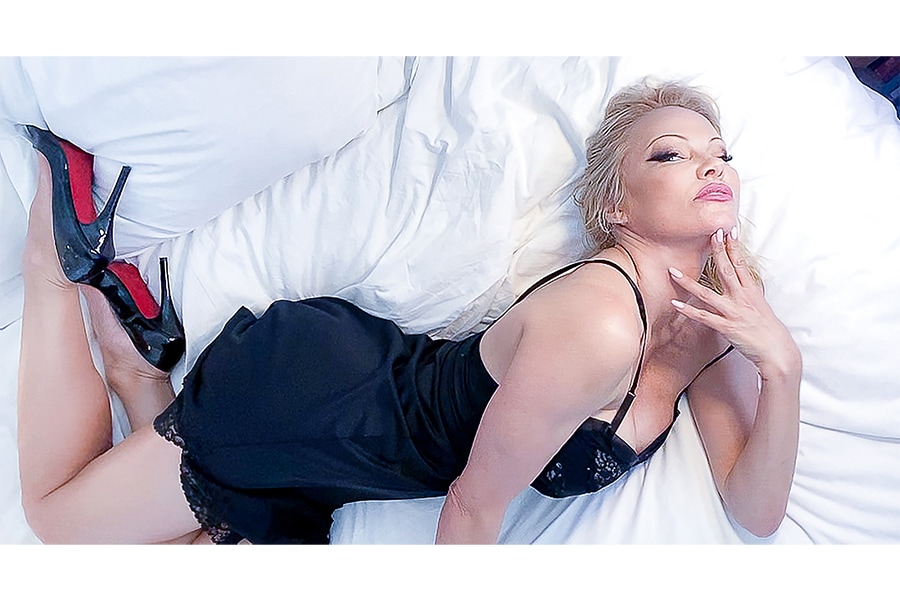
FaceTime with Pamela Anderson, from her Garden of Eden
The star comes camming and canning and canvassing from her idyllic compound on Vancouver Island
 Pamela Anderson is seen on FaceTime in Vancouver, Canada, May 12, 2020. Anderson is camming and canning and canvassing from her idyllic compound on Vancouver Island. (Quil Lemons/The New York Times)
Pamela Anderson is seen on FaceTime in Vancouver, Canada, May 12, 2020. Anderson is camming and canning and canvassing from her idyllic compound on Vancouver Island. (Quil Lemons/The New York Times)
Nothing can prepare you for FaceTiming Pamela Anderson. One second there is only you — staring, through a layer of iPhone glass, at your tired, trapped reflection, both of you hoping that is not how you actually look — and the next second there is Pamela Anderson, brightening the screen instantaneously and completely, the way a ray of sun stretching beyond a cloud can seem to bounce off the whole Pacific.
She is striding across the great outdoors, and she is smiling and she is saying hello but singing it “Heh-LOOOW!” like she is delighted and excited to talk to you. As if you were not bothering her.
But it can’t have been Anderson’s — Pamela’s? Pam’s? “Anytime anyone calls me Pam, I feel like they’re mad at me. But anything is fine!” — dream of dreams to drop everything in the middle of her day to answer nosy questions for over an hour.
She has a 6-acre pocket of a Canadian island to run. She has shrubs to select based on criteria of prickliness (for privacy) and beauty (for overall visual harmony). She has formal letters to write to the men and women — mostly men — who hold their nations’ nuclear codes, about subjects close to her heart. She has got Anaïs Nin to reread, and Russian to study, and a cam site to unveil.
The last of these tasks, on a recent Friday afternoon, granted the intrusion into Anderson’s peaceful, insular existence. She was preparing for the refurbished debut of Jasmin, a not necessarily sexually explicit webcam, or “camming” site, which offers live online broadcasts and prerecorded content, and has been envisioned as a tamer offshoot of LiveJasmin, one of the most popular, nearly always sexually explicit cam sites on the web.
©2019 New York Times News Service




